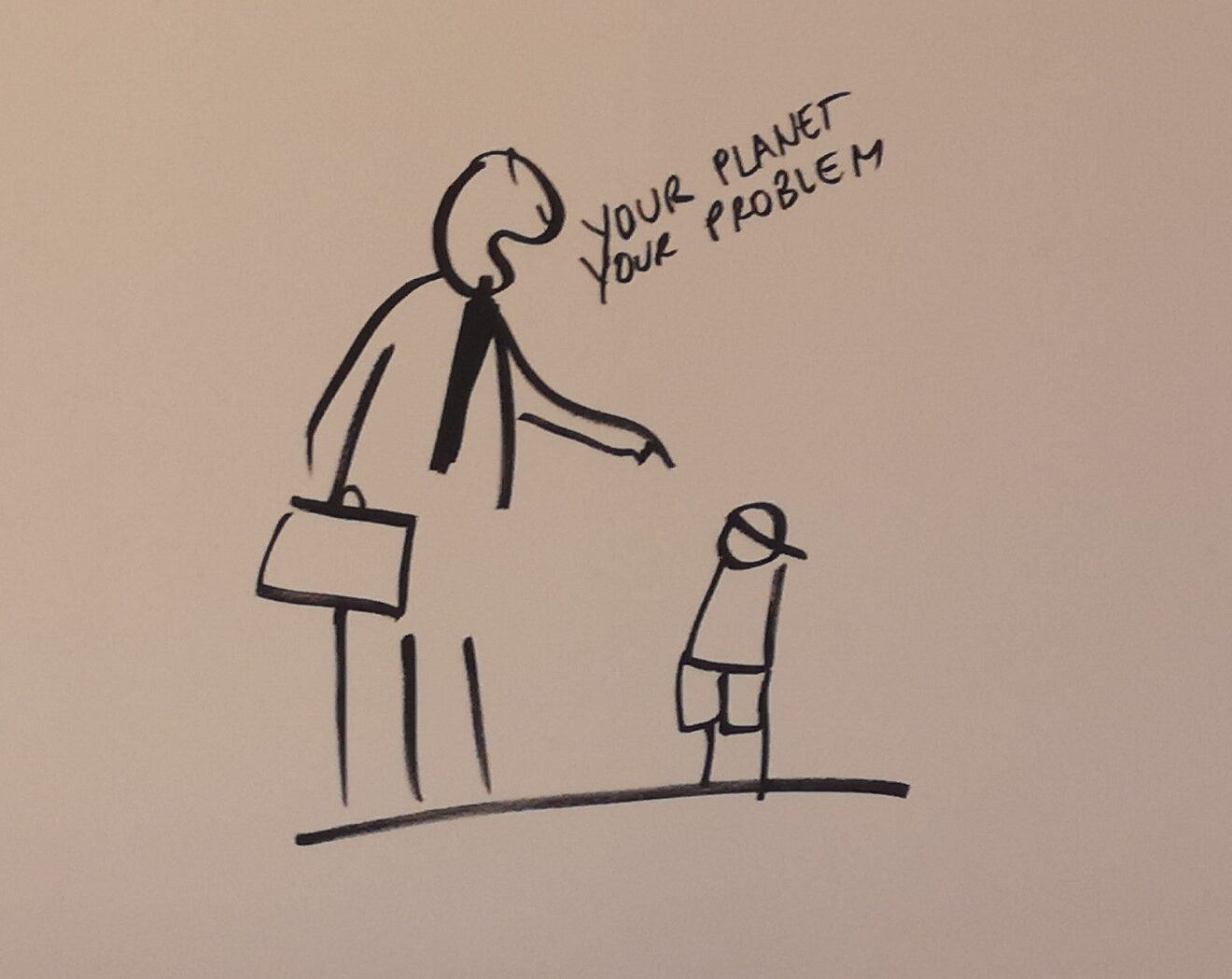Leading in the context of a climate crisis is challenging.
First, leaders are trapped (as we all are) within an ideology. Ideology was defined by Louis Althusser as an imaginary relationship to real conditions. Ideologies are housed within structures that facilitate the reproduction of the ideology. When we start looking, ideologies are everywhere! Capitalism and market competition are examples. Leaders cannot opt out.
Leaders can’t lead when they don’t have meaningful agency. Let’s look at the numbers:
- CO2 in the atmosphere and GDP have a 0.96 coefficient and there is little evidence that we can decouple [www.globalcarbonproject.org].
- We emit 41.4Gt of CO2 globally per year. The carbon budget for a 1.5oC world will be exhausted sometime in 2029.
- Each 1,000 Gt CO2 causes a median estimate of 0.45oC of warming [IPCC]
- Current fossil fuel reserves (the portion of fossil fuel resources that we can extract with today’s technology and at today’s prices and that are accounted for in the balance sheets of the fossil fuel companies and petro states) would release 3,328 Gt CO2.
- These banked reserves have a market value of $259 trillion
- To meet the 1.5oC upper warming limit, 94% of reserves would need to left in the ground. This means stranding assets worth $244 trillion [Dalay, T. 2024 The Future of Denial]
All the incentives point in the wrong direction. Climate change is not a market failure. It is a market success.
Big talk about fighting climate change assumes that states and companies gripped by a capitalist ideology are going to walk away from mountains of cash.
Even if fossil fuels were banned tomorrow, the loss of the Haber process, which depends on natural gas for fertilizer production, would jeopardize the food security of about 3 billion people. That is ignoring the fact that governments would topple first…
These are a small sample of the features of our situation.
When discussing climate leadership with organisations – it is always about what the organisation can do to lower their emissions. They talk about technology, operations and supply chains. How do they keep emissions from being allocated to them?
Leaders are not talking (in my experience) about what needs to happen to lower emissions. This would be an entirely different conversation. It would demand recognising the ideology that has us gripped. And today’s leaders (and I) have done very well courtesy of that ideology.
The climate crisis demands that leadership be redefined to something far more holistic and systemic. Something beyond what our prevailing norms and governance can accommodate. We don’t seem to have leaders who can navigate this bigger space.
In truth, I think most leaders recognise this. Hence, very few are putting their heads above the parapet. Most are too busy just getting on with things…
Someone once observed – we can ignore reality, but we will not be able to ignore the consequences of ignoring reality.

Share this on...